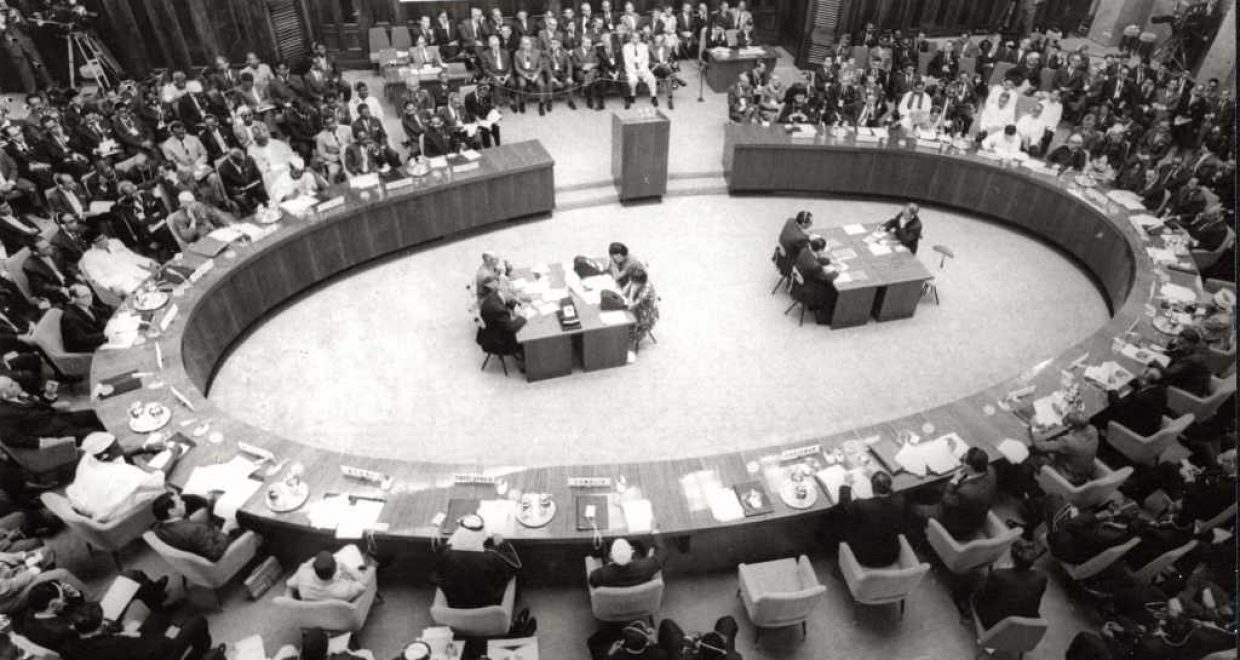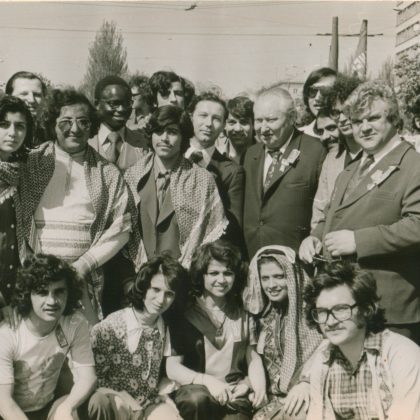‘Crude’ Alliance – Economic Decolonisation and Oil Power in the Non-Aligned World
This article accompanies Ljubica Spaskovska’s Contemporary European History article ‘Crude’ Alliance – Economic Decolonisation and Oil Power in the Non-Aligned World.
Part of the special issue Eastern European–Middle Eastern Relations: Continuities and Changes from the Time of Empires to the Cold War
The politics of nationalisation and sovereignty over natural resources was something that socialist Yugoslavia shared in terms of political goals and ideology with its non-aligned Middle Eastern partners. When the wave of nationalisations began in the aftermath of the 1973–4 OPEC price increases, and when in December 1975 Iraq finalised the process by taking over the remaining holdings of British Petroleum (BP) and Shell, Yugoslavia could identify with the battle against ‘oil imperialism’, as the Yugoslav elite could relate to these events through personal histories of revolutionary struggle. ‘We are no one’s colony, where foreign capitalists can freely implement their dark scenarios’, asserted in 1940 an anonymous local activist with regard to the Yugoslav oil industry being in American and British ownership and the exploration of oil fields being controlled by German capital. After the end of the Second World War Yugoslavia nationalised all of the assets owned by Yugoslav Shell. When the main oil producing countries in the Global South and the Non-Aligned Movement launched a similar wave of nationalisations in the 1960s and 1970s, the Yugoslav revolutionary elite could easily identify with the new transnational politics of economic decolonisaiton and use it to forge political and economic bonds with the new Middle East.
However, competing senses of triumphalism and vulnerability marked the shift from decolonisation to globalisation in the realm of the international political economy, where interdependence was seen both as an opportunity and a threat in the relations between smaller non-oil producing countries such as Yugoslavia and the rich Middle East. Yugoslavia’s nonaligned partnerships in the Middle East, after all, were not enough to shield it or the other less developed non-oil producing states in the global South from the disastrous economic consequences of the 1970s oil shocks and high oil prices. Following Iraq’s invasion of Kuwait, the Yugoslav government, which was chairing the Non-Aligned Movement after having hosted the last NAM Cold War Summit in 1989, condemned the aggression and annexation and called for an immediate and unconditional withdrawal of Iraqi troops. The Yugoslav government endorsed the imposition of sanctions on Iraq, despite the fact that the country faced grave consequences in terms of oil imports and the large investment projects Yugoslav companies were involved with in Iraq. ‘The negative effects of the implementation of Security Council resolution 661 on the Yugoslav economy would amount to nearly US $3 billion’, wrote the Yugoslav Foreign Minister to UN Secretary-General Perez de Cuellar, not knowing that the very principles his government stood for in the case of Kuwait, not least territorial integrity and de-escalation of tensions, would come to haunt his own country the following year.
Read all articles in the special issue
Main image credit: 1st Non-Aligned Movement (NAM) Summit, 1961, Belgrade CC-BY





